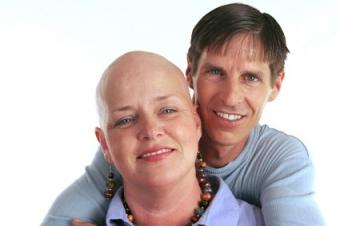
Infertility is a recognized issue for cancer patients and fertility treatment access is entirely feasible, however, success rates, methods of treatment, and the ability to access treatment may vary depending on where intervention is provided.
Cancer: Effects on Fertility
Not all cancer treatments have an effect on fertility, however, chemotherapy and some forms of radiotherapy are known to inflict damage on the ovaries or testicles thus reducing a person's overall chance of having children.
Due to the well-documented effects of some cancer treatments and their subsequent effects on the fertility of men and women, advances in medical science have increased the chances of cancer patients having children. The collection or "banking" of sperm from the male and the collection and storage of embryos from the female broaden the possibility of being able to embark on fertility treatment such as IVF once cancer treatment has ceased and the patient is fully recovered. For women, the risk of damage to the uterus may have a detrimental effect on fertility as can the risk of inducing early menopause with certain cancer treatment drugs.
More recent scientific research has made it possible to freeze portions of the healthy ovary and eggs for use in fertility treament. So far, few pregnancies have been achieved using this method. Other important factors to consider when assessing the effects of cancer on fertility are:
- The age of the patient - it is a common fact that fertility decreases with age, even in the 'well' woman.
- The gender of the patient
- The type of cancer
In every case where a male or female of chilbearing age is about to embark on cancer treatment, they will be fully counseled as to the potential effects both the cancer and the treatment will have on future fertility. They will also be given detailed information on options surrounding fertility intervention both before and after the cancer therapy.
Cancer Patients and Fertility: Treatment Access Issues
When a person with cancer is about to commence treatment which may knowingly affect their fertility, they have the advantage over other infertile people as they have a time for preparation and planning before their fertility poses problems. Individuals who suffer from infertility for other reasons do not have the benefit of knowing about their problems before they are confronted by them.
A U.S organization founded in 2002 named the 'Cancer and Fertility Society' (CFS) has worked hard to fight for the fertility rights of many cancer victims. One of their main roles is educating cancer specialists about the need to offer fertility support to their patients at the same time that they receive their cancer therapy. The organization has the following projects in the pipeline:
- New techniques in surgery to treat pregnant patients with cervical cancer with successful preservation of pregnancy.
- Ovarian transplant as a technique for restoration of fertility.
- Uterine transplantation for restoration of fertility.
- A new Cancer and Fertility Center at New York Downtown Hospital.
With organizations like the CFS working hard to resolve healthcare issues relating to cancer patients and fertility treatment access, there is most certainly increasing hope for those who suffer. In the United Kingdom, individuals who utilize the 'National Health Service', controversial restrictions have been placed on fertility treatment for those suffering or whom have suffered from cancer. It is often believed that as infertility has been caused by a deliberate act such as receiving radiotherapy, a patient should be denied free fertility treatment as a result.
The same approach is also an issue with some US healthcare insurers who apply restrictions to what is and what is not covered by healthcare insurance, particularly relating to cancers and fertility. Individuals who do not have adequate insurance cover need to carefully consider these issues.
Locating Treatment Centers
A further problem that some individuals face is the ability to access specialist fertility services. For example, difficulties may occur when a male is required to access a sperm bank to provide samples for storage and he is unable to locate a treatment center near to his home. A patient who is about to undergo cancer treatment may be unable to travel what could amount to hundreds of miles.The logistics of such treatments can, at times, reduce the potential for an individual to have equal access to them. When faced with the possibility of never having children, this is likely to add to the distress the cancer patient is already experiencing.
Careful planning is therefore required when an individual decides to undertake preparatory fertility treatment prior to their cancer treatment. It is crucial that the individual is aware of how often they will be required to visit the fertility center and what will be required of them when they do. Because of the need to attend on a regular basis, the geographical location is vitally important.
Fair Treatment for All
Fortunately, with the help of charities and other international support groups, cancer patients are gaining easier access to fertility treatment and are less likely to be excluded or treated differently. Acknowledgement of fertility issues by cancer specialists has been heavily criticized in the past, however, with better education these issues are improving. Essentially, a cancer patient of child-bearing age should automatically be referred to a fertility specialist if it is their long-term wish to have a family. Because of critical time management of fertility treatments, the sooner a referral is made and preliminary treament is sought, the sooner the individual can commence their important cancer treatment.







